CHRISTINE Burke and Robyn Cohen are among eight Tasmanian women – the first ever – planning to sue the state government over forced adoptions from the 1960s to 1980s.
Their lawyer, Rowena Macdonald, said they also planned to sue the Salvation Army and other potential agencies and organisations responsible for the now widely condemned practice.
Ms Macdonald, a Hobart-based lawyer with Angela Sdrinis Legal, echoed Christine and Robyn’s sentiments that the Tasmanian government’s apology in 2012 was not enough.
“What we’re hoping to see is, 10 years on from the apology, that these women are finally properly compensated, as far as that is even possible, for the cruelty they endured, for their profound loss and for their lifelong pain,” she said.
She said the statute of limitations, which meant litigation could not occur more than six years after an event, was a “hurdle that we’ll look at overcoming”.
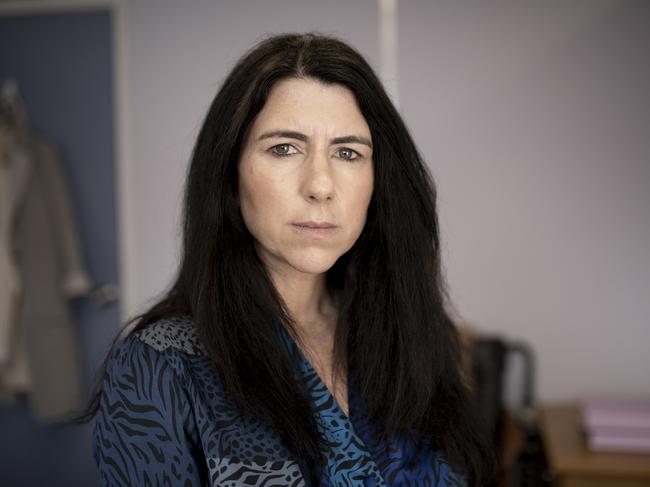
Greg Barns SC said he had been involved in advocating for women in Victoria who had been through similar trauma.
“Generally, there is increasing recognition within the Victorian government that there needs to be compensation for these women, and barriers like the statute of limitations in these cases is inappropriate and just unfair,” he said.
“I think the lesson now is this: when governments issue apologies for wrongdoings such as what happened to women forced to give up their children, it’s a hollow apology if it doesn’t come with some mechanism for compensation.”
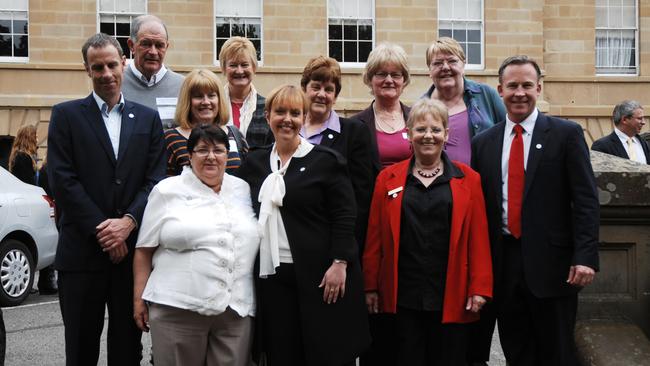
Robyn said she had spent thousands on psychological counselling since her child was removed from her from the Royal Hobart Hospital in 1969.
“I want justice. They should be accountable for what their staff did to us and the dreadful, dreadful psychological impact it had on us,” she said.
“They were cruel.”
Christine agreed.
“My thoughts were ‘they’re not going to bloody well get away with it’,” she said.
More than 11,000 adoptions were formalised in Tasmania between 1920 and 1988, although it is unknown how many of these were forced.
The state government has been contacted for comment.
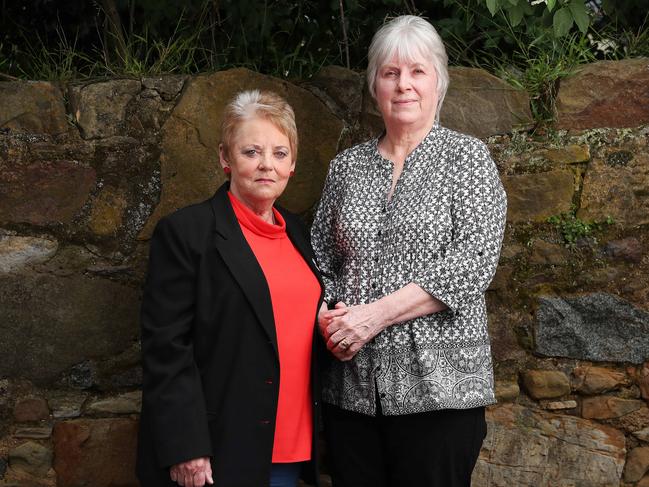
‘We mourn for the years that we lost’
FOR years, Christine Burke and Robyn Cohen scanned the faces of every little girl they saw, hoping to find the daughters that had been taken from them at birth.
As teenage girls who became pregnant in the 1960s, they had been given no real choice other than to sign over their precious babies for adoption.
Shamed mercilessly in the maternity wards, given no real medical attention during labour until the babies’ heads were crowning, stripped of every skerrick of dignity, and then separated from their newborns – the trauma and grief has never left them.
While an apology to the victims of forced adoptions was made in parliament during 2012 by then-premier Lara Giddings, Christine and Robyn say it is just not enough.
They want justice.
The women, who were coerced into signing over their babies and, without consent, were injected with medication to make their breast milk dry up, are now about to sue the state government, the Salvation Army Elim Maternity Hospital in West Hobart and the Royal Hobart Hospital Obstetric Division in Gore Street.
They, along with a group of others, will be pioneers in the litigation, with these institutions in Tasmania never previously sued for their wrongs of the past.
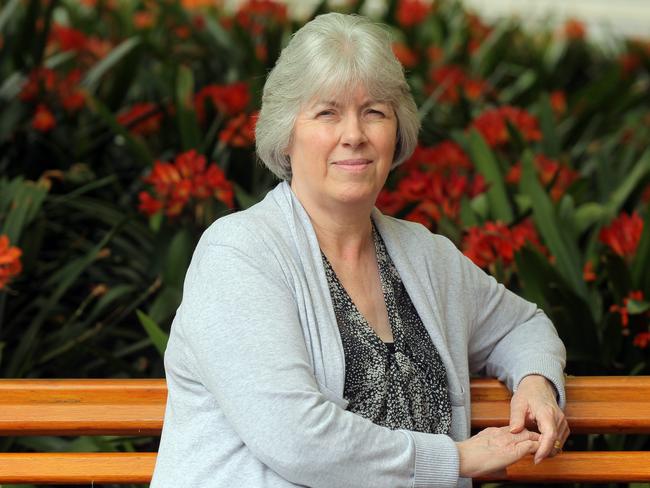
Robyn’s story
Robyn, who birthed her baby at Gore Street at 18, said her daughter was delivered downward so she couldn’t see her, with a nurse whisking her out of the room as soon as she was born.
“They wouldn’t tell me if I had a boy or a girl. I never heard the baby cry. I never saw her. It took me three days to find out that I’d had a girl, by which time I was absolutely beside myself,” she said.
“I was put in a room with mothers and their babies, and I didn’t have a baby. I kept asking to see the baby.”
Robyn was eventually given a brief moment with her baby, but by this stage “I didn’t know what was happening”.
“I was taken to a room and all of a sudden this baby was put in my arms. I have no memory of my baby, I was so not there. I was so not there that I have no memories of my own baby. And to this day, I can’t accept that.
“And then I was sent out the door with ‘forget you ever had a baby, go home, forget about it’.”
Of course, Robyn never forgot about her daughter, spending years in therapy trying to come to terms with her loss.
She and her daughter have since been reunited, but their relationship is strained.
“My daughter says to me, ‘there must have been something you could have done to keep me’. It’s a generational thing. An unmarried mother now is nothing, it’s normal,” Robyn said.
“The societal system in 1969 was just punitive. You didn’t have sex before marriage.”
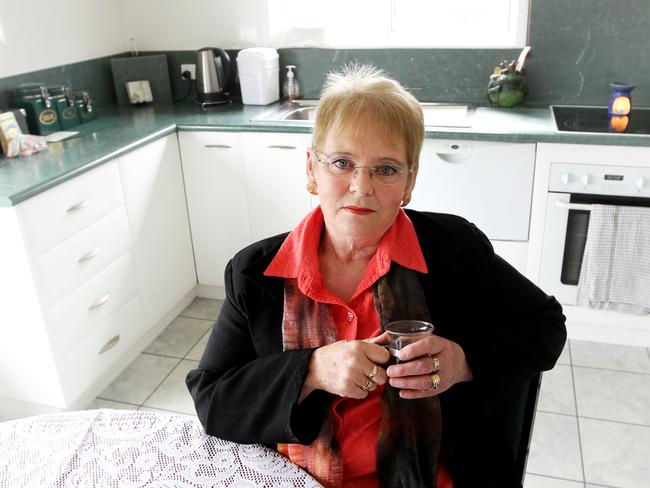
Christine’s story
Christine, who gave birth at the now-defunct Elim in 1968 at age 17, also said she was punished during the birthing process, during which she was called a “slut”.
“I was tied to a bed,” she said.
“They gave me two Disprin and told me to ‘bloody well stop whinging’.
“Slut was the favourite word.”
A nurse came in at the last moment and literally caught the baby as she was going over the edge of the bed.
Christine was given almost no medical care, collapsing when she got out of bed.
She said she was bullied first by her mother, who had been dreadfully ashamed of her pregnancy, before being mistreated again at Elim.
“I told my baby that I would find her,” she said.
“You tell them everything you think they’ll want to know when they grow up. You tell them you love them. You tell them you’re going to find them when they grow up. You tell them you hope they have a happy life.”
When Christine’s child was 17, she started looking for her – and they now thankfully have an ongoing relationship.
But Christine says she will never stop grieving for those lost years.
“We mourn for our life, for the rest of our life we mourn. And if we do find our child, even if it’s a happy reunion, we still mourn for the years that we lost, we can never bring them back.”
No free will
Both Christine and Robyn say there was no real choice in whether or not they could keep their babies.
Robyn said her daughter was marked for adoption before she even gave birth, and that she was continually told “if you love your baby, you’ll adopt it”.
Robyn said she thought she had a 30-day window to get her baby back, but got no help or information on how to jump through the almost impossible administrative hoops to do so, which apparently involved a direct plea to the Director of Health himself.
“Every day. Every single day I thought about going up there and getting her back. She wasn’t there anyway, she’d already gone,” she said.
“I was such a wreck, I left Tasmania within three months … it’s affected me my whole life.
“It was a huge secret, my baby was never spoken of for 20 years.”
Christine said the staff at Elim told her if she didn’t adopt out her daughter, she’d be in the foster system within a matter of months.
“I used to go around looking at people, looking at kids, thinking ‘I wonder if that’s her, I wonder if that’s her’,” she said.
“You look at all the kids.”
Christine said all the decisions about her and her baby were taken from her.
“You’ve got to remember the politicians and the Church, they were all middle-aged white men … and they always knew what was best.”
Robyn said an apology wasn’t enough.
She said no Australian state government had set up a redress scheme for victims of forced apology, which had been a key recommendation of a 2012 Senate inquiry.
“I personally know three women who have passed away in this time and there’s no justice for them,” Robyn said.
“We’re all getting older. I’m 71. Are they going to wait until we all die?”
She said the issue wasn’t getting enough attention as it should, as many of the victims still remained silent.
“A lot of women still haven’t told their husbands, they still haven’t told their families. It’s still a big secret. So we don’t have many voices to bring it to the fore.”

Add your comment to this story
To join the conversation, please log in. Don't have an account? Register
Join the conversation, you are commenting as Logout
Tassie guides show their wild side
These passionate pioneers are being recognised for their everyday work in making every visitor’s day unforgettable and sharing Tasmania’s stories. How they’re creating great experiences, one tour at a time.
Tassie jewels frozen in winter wonderland
Tasmanian brand Francesca have given locals the chance to get their hands on a new jewellery connection – but at a chilly cost. Inside the unique giveaway.